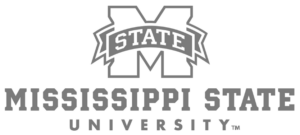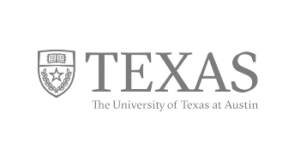The University of Texas at Austin, Rice University and Texas AandM University have received a three-year, $3.75 million grant from the National Science Foundation (NSF) to become a regional innovation hub that translates academic research into useful technologies with commercial applications.
The NSF Innovation Corps (I-Corps) program has designated three Texas tier-one research universities as the Southwest Alliance for Entrepreneurial Innovation Node, charged with empowering teams of university scientists and industry experts to develop life-changing products. NSF supports all fields of fundamental science and engineering, as well as research into science, technology, engineering and mathematics (STEM) education. The I-Corps program encourages scientists and engineers to consider how their federally funded, fundamental research projects may become commercial ventures.
“The I-Corps program is no doubt one of the nation’s signature programs for promoting entrepreneurship and startup creation, and we are, of course, honored by the designation,” said Juan Sanchez, vice president for research at UT Austin, which is the lead partner in the node. “Having an I-Corps Node established in Texas represents a unique opportunity for researchers and institutions across the state and region to leverage existing research efforts into new business initiatives that will benefit society at large.”
The node offers potential partnerships with 33 institutions in the southwest region representing more than $600 million of NSF funding in fields such as bioscience, K-12 education, materials energy research, geosciences, engineering, psychology, oil and gas, water filtration and entrepreneurism.
“NSF looks for broader impacts, so involving schools in our system and region is a way to broaden and advance the I-Corps initiative,” said Richard Lester, executive director of the Center for New Ventures and Entrepreneurship (CNVE) at Texas AandM University’s Mays Business School. “One of our far-reaching goals is to teach this process to other universities in the region.”
To participate, three-person teams composed of an NSF-funded researcher, a business mentor and a graduate student (known as the entrepreneurial lead) apply to the I-Corps Team program. If accepted, the team is entitled to a six-month, $50,000 grant from the NSF focused on exploring the commercialization of fundamental research ideas. The team will also attend official NSF I-Corps training at one of the National I-Corps Nodes.
Nodes, such as the one being created with the three Texas universities, then facilitate an innovation-enhancing training program for the teams and offer support during the process of moving valuable ideas beyond the lab.
“Universities are the birthplace of new ideas and epicenter of life-changing research,” said Brad Burke, managing director for the Rice Alliance for Technology and Entrepreneurship.
“This new NSF I-Corps initiative is a paradigm shift that will facilitate a cultural change in universities and research centers designed to take researchers’ creativity and innovation to the commercial level. It will be a driver for higher education and university research to become much more entrepreneurial.”
Training begins with a three-day introductory workshop at an I-Corps Node and continues for about six weeks with weekly virtual team presentations and updates with National Node faculty members. Training ends with an in-person, two-day session to evaluate lessons learned and next steps. UT Austin will host the region’s first national cohort in October. The NSF I-Corps curriculum is derived from Stanford University’s Lean LaunchPad course that teaches students effective startup methods and technology commercialization.
Other regional I-Corps Nodes across the country are located in the Bay Area/Silicon Valley, the D.C./Maryland/Virginia region, southern California, New York City, Georgia and Michigan. The Southwest Alliance for Entrepreneurial Innovation Node will be the first node in the southwest/midcontinent region of the country.
The application for the node was a multiuniversity effort involving each of the three Texas schools. Key personnel at the universities include: Rice University’s Brad Burke, managing director for the Rice Alliance for Technology and Entrepreneurship, and George McLendon, Howard H. Hughes Provost and professor of chemistry and biochemistry and cell biology; Texas AandM University’s Richard Lester, clinical associate professor and executive director of the Center for New Ventures and Entrepreneurship, and Valerie Taylor, senior associate dean for academic affairs and the Royce E. Wisenbaker Professor; UT Austin’s Robert Peterson, associate vice president for research, and Juan Sanchez, vice president for research. The NSF grant for the Southwest Alliance for Entrepreneurial Innovation Node is No. 1444045 and can be viewed here.
Adding to Campus Initiatives
The NSF I-Corps program will build innovation programs already advancing breakthroughs at the three Texas institutions.
The University of Texas at Austin IC2 Institute fosters economic development locally and internationally through collaborations among the university, government and private sectors with programs such as the Austin Technology Incubator and the Global Commercialization Group. The Texas Advanced Computing Center‘s high-performance computing tools accelerate research, and the Office of Industry Engagement works closely with the Office of Technology Commercialization to ensure fast and successful transfers of university discoveries to the marketplace.
The Rice Alliance for Technology and Entrepreneurship is Rice University’s globally recognized initiative devoted to the support of technology commercialization, entrepreneurial education and the launch of technology companies. Programs include the Rice Business Plan Competition for global student startups that awarded nearly $3 million in prizes in 2014; OwlSpark, a student startup accelerator; and three flagship technology venture capital forums in the areas of energy and clean technology, life science and information technology.
The CNVE, part of Mays’ Department of Management, is the hub of entrepreneurship across Texas AandM University. Last year, the center reached about 3,500 students. Startup Aggieland is a business incubator providing space for all Texas AandM students to apply classroom knowledge and explore entrepreneurship with assistance from faculty members, administrators, peers and mentors. The CNVE also hosts such efforts as the Entrepreneurship Bootcamp for Veterans with Disabilities, the MBA Venture Challenge competition for graduate students, the Start-Up 101 workshop series, and the campus-wide Ideas Challenge.








